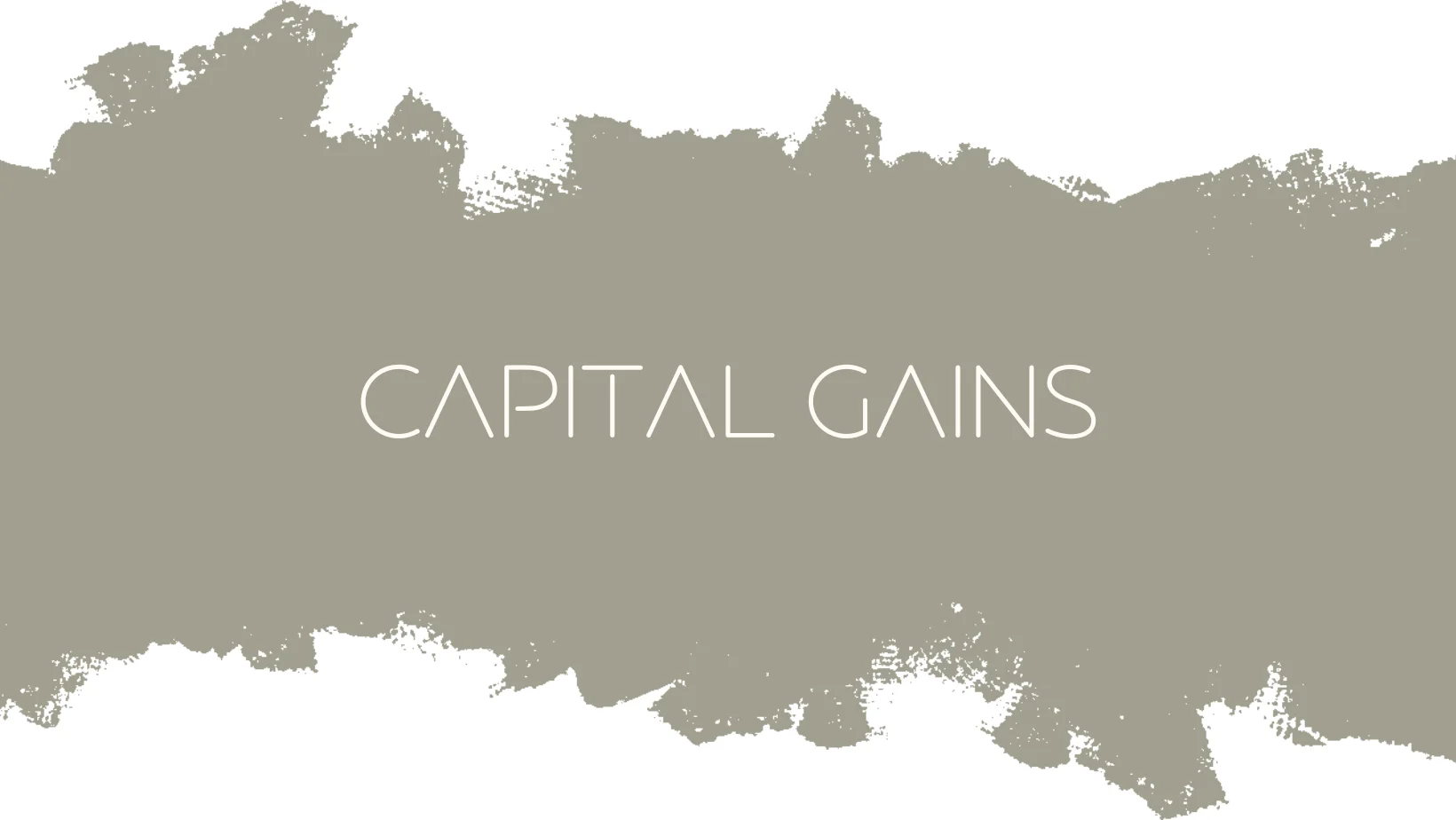Capital Gains Tax

When you sell your first property, you will likely hear people warning you to be careful about Capital Gains Tax.
But what is it? And when does it apply?
Let's dive into the world of Capital gains tax and explore what you can do to ensure that you are financially intelligent each time you sell a property.
But first, did you know there are vital considerations you need to worry about if you sell a property that still has a mortgage? To learn how to navigate selling a mortgaged property, click the link below for a free strategy call today.
What is Capital Gains Tax?
Capital gains tax is a tax on the profit made after selling a property or asset. So, in real estate, that is the tax paid on the difference between a home's purchase and sale price.
When Do You Need to Pay Capital Gains Tax on Real Estate?
In real estate investing, you can expect to pay capital gains tax almost every time you sell an investment property. There are very few exemptions for capital gains tax.
The most apparent exemption is when a property sells for less than you initially bought it for. Capital gains are meant to tax the profit gained through the asset; thus, if you lose money, they will not tax you.
The second most common exemption is on a principal residence. If you sell a property and it was marked as your home for the entire time you have owned the property, you can expect to pay nothing in capital gains. However, if you have used the property as a rental or lived elsewhere for a time, you will likely need to pay capital gains.
This exemption led to a popular loophole for property flippers where they would buy a property and live in it for the duration of their flipping process to sell the property with zero capital gains tax. However, as of January 2023, a new rule is in place to discourage this trick.
If a property is sold less than 12 months after being purchased, the capital gains exemption on the sale will not apply.
How Capital Gains Tax Is Calculated
Capital gains tax is calculated using a variety of factors such as the province of sale, your employment income, purchase price, sale price and selling costs. While there are calculators online you can use to get an estimate, it is almost always best to let an accountant look at the numbers and do the math for you to ensure you are prepared for tax season.
However, to provide a general picture of capital gains tax, let's walk through an example.
Let's say you sell an investment property in Ontario for $650,000, but you bought the property ten years ago for $200,000. This means your property has experienced a total of $450,000 in capital gains. While selling that property, you spent approximately $30,000 in selling costs and made a total of $65,000 that year in employment income.
With these numbers, you can pay an estimated $94,000 or an average 22.40% tax rate.
This is just an estimate, but it can help you understand the factors you must consider.
If You Are Ready to Invest
If you are ready to sell a property, you need to think about more than just capital gains, especially if you still have a mortgage taken out against the property. To navigate how your mortgage may impact the selling process, click the link below to book a free strategy call with our team at LendCity today.
